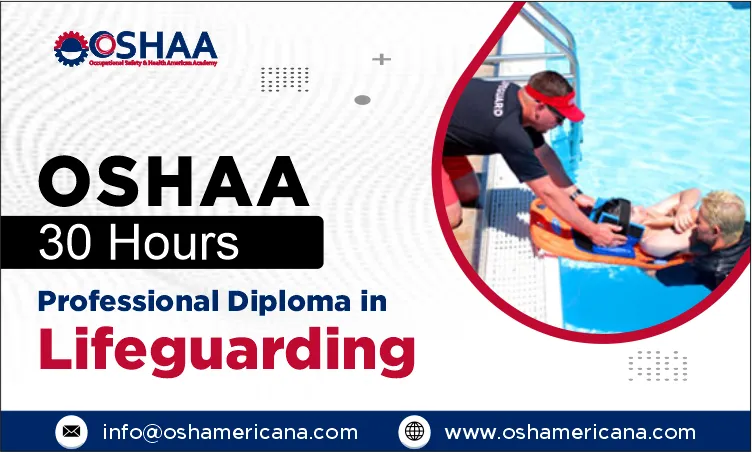Antisocial Personality Disorder (ASPD) is a complex and often misunderstood condition that presents significant challenges within mental health, social care, and criminal justice settings. The OSHAA 30-Hours Professional Diploma in Antisocial Personality Disorder is designed to provide participants with a comprehensive understanding of the disorder, focusing on its characteristics, risk factors, and effective approaches to intervention and support.
Participants will gain valuable insights into managing and responding to the unique challenges posed by individuals with ASPD. The course covers evidence-based therapeutic interventions, such as cognitive behavioural approaches and structured risk management techniques. Emphasis is placed on practical strategies to build professional resilience, maintain appropriate boundaries, and work effectively within multidisciplinary teams.
The OSHAA 30-Hours Professional Diploma is suitable for professionals working in mental health, social work, youth offending, probation services, education, and care environments. It supports participants in developing the knowledge and confidence needed to engage safely and constructively with individuals exhibiting antisocial behaviours, particularly in high-risk or emotionally demanding situations.
Upon successful completion of the diploma, participants receive a recognised certification that demonstrates their expertise in working with antisocial personality disorder. This credential not only strengthens professional development but also enhances participants’ ability to contribute to more informed, ethical, and person-centred care.
OSHAA 30-Hours Professional Diploma in Antisocial Personality Disorder
Study Units
Learning Outcomes
Introduction to Antisocial Personality Disorder (3 Hours)
- Understand the definition and scope of antisocial personality disorder
- Recognise the impact of ASPD on individuals, families, and society
- Identify the core features and common misconceptions surrounding the disorder
- Explore the relevance of ASPD within clinical, social care, and forensic settings
Diagnostic Criteria and Clinical Features (3 Hours)
- Interpret the DSM and ICD diagnostic criteria for ASPD
- Identify key behavioural and emotional characteristics of the disorder
- Distinguish ASPD from other personality disorders and comorbid conditions
- Understand the age-related and gender-based presentation of symptoms
Developmental and Environmental Risk Factors (3 Hours)
- Analyse early childhood experiences linked to the development of ASPD
- Recognise the influence of parenting style, trauma, and attachment issues
- Understand the role of adverse childhood experiences in behavioural outcomes
- Evaluate the impact of social and economic environments on personality development
Neurobiological and Psychological Perspectives (6 Hours)
- Examine the neurological and genetic factors contributing to ASPD
- Understand the relationship between brain structure, function, and behaviour
- Explore psychological theories including behavioural, cognitive, and psychodynamic models
- Link neurobiological findings to clinical practice and risk assessment
Assessment and Screening Tools in ASPD (3 Hours)
- Learn how to use validated tools for identifying ASPD traits
- Understand the limitations and ethical considerations of assessment
- Apply structured interviews and observational methods in practice
- Interpret findings to support diagnosis and intervention planning
Therapeutic Approaches and Behavioural Interventions (4 Hours)
- Evaluate evidence-based treatments such as CBT and schema therapy
- Explore behavioural management strategies suitable for ASPD
- Understand the role of motivation and therapeutic alliance in treatment success
- Develop practical skills for engaging with individuals resistant to intervention
Working with High-Risk Individuals and Offender Populations (3 Hours)
- Recognise the complexities of managing individuals with a history of criminal behaviour
- Apply de-escalation and behavioural monitoring techniques
- Understand the principles of rehabilitation, containment, and risk reduction
- Work collaboratively within forensic and custodial settings
Professional Boundaries and Practitioner Safety (5 Hours)
- Identify the risks associated with working closely with individuals with ASPD
- Establish and maintain clear professional boundaries
- Develop strategies to manage manipulation, hostility, and emotional impact
- Apply reflective practice and supervision to ensure practitioner wellbeing and ethical conduct
Course Benefits – OSHAA 30-Hours Professional Diploma in Antisocial Personality Disorder
- Enhances professional understanding of the complex features and causes of antisocial personality disorder
- Equips participants with evidence-based approaches for assessment, intervention, and behavioural management
- Strengthens the ability to recognise early warning signs and contributing risk factors in various settings
- Develops practical skills for working with high-risk individuals, including those in criminal justice or forensic care
- Provides essential tools for maintaining professional boundaries and ensuring personal safety
- Increases confidence in managing difficult behaviours through structured and ethical frameworks
- Supports effective multidisciplinary collaboration and communication
- Prepares participants to handle challenging scenarios with professionalism and sensitivity
- Offers a recognised certification that contributes to professional development and career progression
- Builds a deeper awareness of the legal, ethical, and safeguarding considerations when supporting individuals with ASPD
The OSHAA 30-Hours Professional Diploma in Antisocial Personality Disorder is designed for individuals working in sectors where understanding complex behavioural conditions is essential to professional practice. This course is particularly suitable for:
- Mental health practitioners and support workers
- Social care professionals involved in behavioural assessment and intervention
- Youth workers and probation officers
- Professionals in forensic, custodial, or criminal justice environments
- Educators and safeguarding officers working with at-risk populations
- Healthcare workers providing services to individuals with behavioural disorders
- Anyone seeking to deepen their understanding of antisocial personality disorder in a professional capacity
This diploma is ideal for participants looking to enhance their skills in managing high-risk behaviour, supporting informed decision-making, and contributing to safe, ethical, and effective care.







